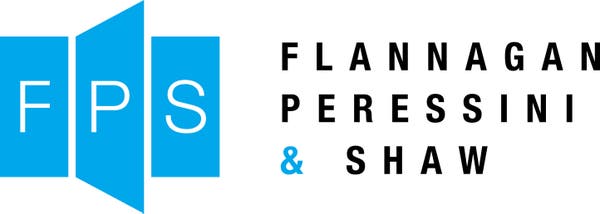What does property settlement mean?
Property settlement is sharing things like money, houses, and debts when a married or de facto couple splits up. It's about deciding who gets what to ensure both people can move on fairly.
You may not own a home or have multiple properties. It may involve working out how much each person pays off credit card or mortgage debt incurred together or who gets an art collection, or where the furniture ends up. Each relationship is different, but the overall purpose is to split a couple's assets fairly after a relationship ends.

How do most people finalise property settlement in Australia?
In Australia, most people figure out who gets what by talking and making agreements with the help of experts like lawyers. Most people try to avoid going to court, as it can add to expenses and heighten stress for both parties. You can find solutions together through mediation or with the assistance of your lawyer negotiating on your behalf.
Once a decision has been reached, this can be finalised by Consent Orders or a Binding Financial Agreement (Family Law Financial Agreement).
What is a Binding Financial Agreement?
A Binding Financial Agreement or Family Law Financial Agreements is a legal document outlining financial arrangements, offering clarity and certainty for parties involved in relationships or marriages.
This type of Financial Agreement can be created when a couple begins a relationship (Prenuptial), during a relationship or after a relationship ends, and are not required to be formalised by the Court. They also allow some privacy in this sense but can hold less weight if either party appeals the agreement.
What are Financial Consent Orders?
Financial Consent Orders are court-approved agreements formalising financial arrangements, providing legal enforceability and finality in property and financial matters post-separation.
If a decision cannot be agreed upon, you or your ex-spouse or former de facto partner may need to attend a hearing at the Federal Circuit and Family Law Court to decide how all the property shared during the relationship will be divided. If a decision can't be reached, what the court considers fair will be applied.
Book An AppointmentAre there time limits for property settlement?
Yes, there's a time limit for sorting out who gets what after a breakup. Doing this within a year is best to avoid problems and ensure everything gets settled smoothly.
For married couples, you will have 12 months from the date of your Divorce to organise your matters.
For de facto couples, it's generally 24 months after the date of separation.
It's best to seek legal advice if this deadline is approaching or has already passed.

What is included in property settlement pools?
Property settlement pools include things like:
- The family home, investment properties & real estate
- Money
- Debts
- Vehicles
- Investments
- Superannuation
- Personal possessions
- Business interests
- Mortgages
- Many other items that are deemed of financial value.
These assets and liabilities should be divided between the two people in a fair way that considers their contributions to the relationship and their future needs.
How do I prepare for a property settlement?
Preparation involves meticulous documentation of assets, liabilities, and financial positions. Seeking legal advice, understanding future needs, and considering the desired outcome contribute to a comprehensive and well-prepared property settlement strategy.
How do you calculate property settlement in a divorce?
Calculating property settlement in a separation involves evaluating contributions, current needs and future requirements, and many other factors. It requires a thorough analysis to ensure an equitable distribution considering both parties' needs and circumstances.
What are financial resources?
Financial resources encompass a spectrum of assets contributing to an individual's financial situation. These include income, savings, investments, business interests, and other financial holdings that influence a person's overall economic standing.
What are parenting and homemaker contributions?
Parenting and homemaker contributions are the things you do for your family that don't involve receiving payments. This includes caring for the home, looking after the kids, childcare and emotional support or other unpaid work. All of these contributions are considered when it comes to deciding how things get shared, especially when both parties have made multiple contributions to a relationship. Recognising and valuing these contributions is integral to achieving an equitable property settlement.
What are indirect or non-financial contributions?
Indirect financial contributions are when you help improve the economic situation without directly giving money, for example, supporting your partner's career, having a family loan that enables a home to be purchased or a business to be started, or managing the household income well.
What is the duty of disclosure in Australia in terms of property settlement?
In Australia, the duty of disclosure regarding property settlement refers to the legal obligation of both parties involved in a family law matter to provide complete and honest information about their financial situation. This duty is outlined in the Family Law Act 1975. During property settlement proceedings, each party must disclose all relevant financial details, including income, assets, liabilities, and financial resources.
The duty of disclosure aims to ensure transparency and fairness in reaching a property settlement. Failure to fulfil this duty can have serious consequences, and the court may set aside any agreement or order made if there's evidence of non-disclosure or incomplete disclosure. Both parties must act in good faith and provide all necessary information to facilitate an equitable resolution.

Our Property Settlement Services
Property Settlement
We can help with the fair division of assets and liabilities post-relationship breakdown, ensuring an equitable distribution of financial resources for all parties involved.
De Facto Relationship Breakdown
Our services include guidance on legal considerations following the breakdown of de facto relationships, and ensuring proper guidance with property settlement matters.
Independent Legal Advice
We offer independent legal advice, providing personalised guidance to help you understand your rights and make informed decisions regarding property settlement.
Mediation & Negotiation
Our services extend to mediation and negotiation, facilitating collaborative agreements in property settlement, and minimising the need for contentious court proceedings.
Family Court Proceedings
In cases where agreements can't be reached, we assist with Federal Circuit & Family Court of Australia proceedings, assisting with applications, documentation, and representation to ensure fair distribution of the shared asset pool.
Ready to navigate your property settlement with confidence?
Please book an appointment with one of our experienced team members today or call us at (03) 9435 9044. We can advise you on the best path forward for property settlement during or after your relationship breaks down.
Book An Appointment
























